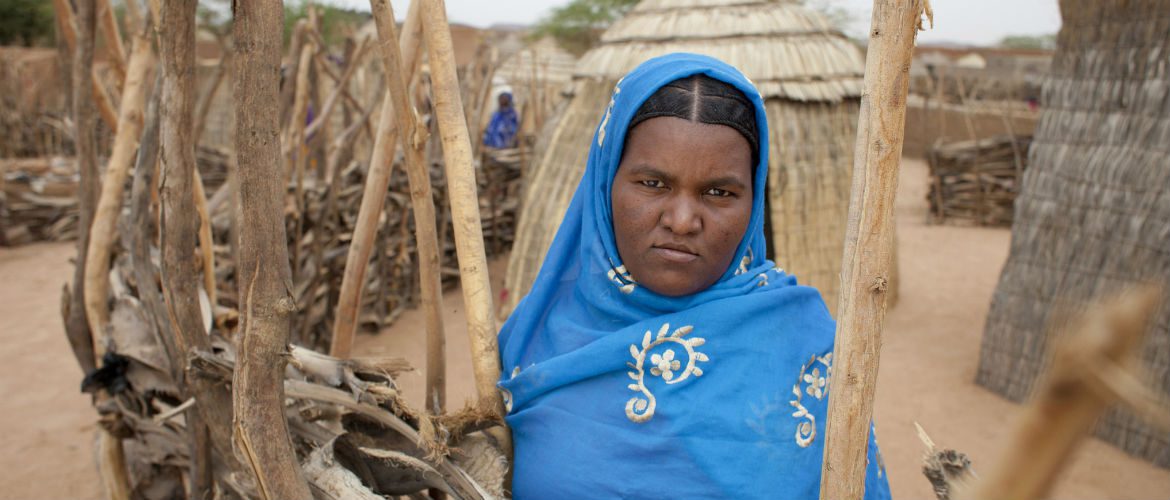
Mariama can’t just turn on a tap and get safe water like we do in Australia.
Mariama lives in Niger — one of the poorest, most drought-ravaged countries on earth. Food there is scarce and clean water even more so. Like half of Niger’s population, Mariama has had to depend on untreated well water which is often contaminated.
The lack of clean water has made malnutrition — already Niger’s biggest killer — an even deadlier crisis. Malnourished children are getting sicker from drinking and washing with dirty water, and without clean water, it’s impossible for them to get proper medical treatment.
Children die every day.
Like most people in Niger, Mariama survives on a diet of millet porridge, with little or no vegetables. Mariama’s only child Fatima had malnutrition very early on, because Mariama wasn’t getting enough good food herself.
“When we came for the first time to the centre I think my baby was suffering from malnutrition — we came here but didn’t have any treatment,” said Mariama.
A mother’s worst nightmare.
Like many centres in Agadez, Mariama’s local clinic didn’t have a clean water supply, toilets or sterile equipment. The team there just wasn’t equipped to care for little Fatima, who was barely clinging to life.
Frantic with worry, Mariama and her mother Tagou scraped together the money for a bull-drawn cart to take Fatima to the district hospital. Mariama rode with Fatima inside the cart, and incredibly, grandmother Tagou ran the 85km journey behind them.
“We had to go … It took almost one day to get there by road. My baby suffered a lot from the journey. When the nurse saw her, she took her to see the best malnutrition doctor; she was fed through the nose. She died with this tube system in her nose,” said Mariama.
Mariama lived through a mother’s worst nightmare. Now she lives with her grief — and the pain of knowing her daughter’s two short years were filled with sickness.
“My baby suffered so long … It was God’s will, there was nothing I could do … God made me his gift and he took away his gift.”
Working towards change.
Oxfam now works in Agadez to tackle the malnutrition crisis and provide clean water.
Thanks to our supporters, we’ve reached 15,000 mother-and-child couples over three years with water points and toilets via malnutrition centres. Oxfam will also train community members on the importance of good hygiene, keeping kids healthy and how to prevent the spread of disease.
The clinic that couldn’t help Fatima now has a 1,000 litre tank with clean water, as well as working toilets, hand washing stations and a laundry area. Nurse Alassane Amadu, who has been with the clinic since 2010, is teaching mothers about nutrition and hygiene.
Alassane told us about the incredible transformation he’s seen since the project started.
“Before it was harmful without the water; we could not practice medicine really … Now it’s wonderful! There’s no problem with water provision, or to clean the medical equipment and treatment centre,” said Alassane.
“The latrines have made an enormous difference. Before we were ashamed that people had to use the facilities. Now we’re so proud.”
Oxfam’s work shows how it’s the simplest things — safe water, toilets, proper hygiene — that save lives and lift families out of despair.
“I believe that since Oxfam brought the water system, children won’t get sick, because they don’t drink water from the well anymore — the water they drink now is treated,” said Mariama’s mother, Tagou.
“Oxfam choosing this village is a huge blessing and opportunity for us as a community.”
Everyone deserves these basic human rights. Yet they’re still out of reach for millions of families in countries like Niger. And there are still millions of children like Fatima who are dying without them. Donate today and save lives with clean water.